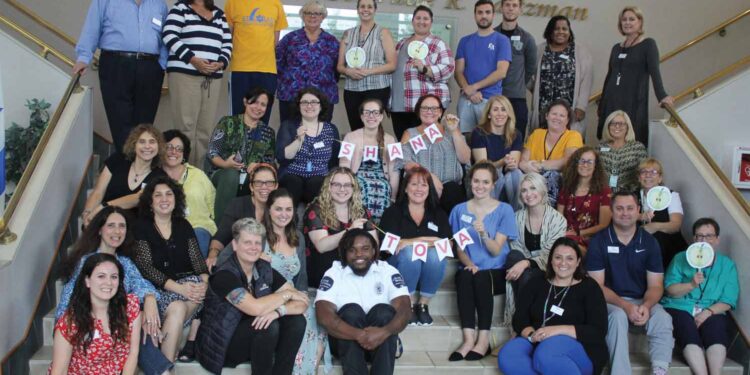Encouraging professional development among your staff can happen in many ways. Most often this is through continuing education opportunities, such as workshops and cross-training. But not to be overlooked is simply making your staff feel valued.
“I personally believe professional development is an important part of growing as a professional,” said Beth Segal, the chief program officer at the Katz JCC in Cherry Hill, New Jersey. “When opportunities present themselves, I like to take advantage of them and encourage my team to do the same.”
And for most staff, opportunities can start presenting themselves as soon as they begin their journey at your organization. For example, Jacob Roberts, the program director at the Telford YMCA in Richmond, Kentucky, begins encouraging staff to seek out professional development opportunities as soon as they start. “Most of our part-time staff are high school and college age students, and the Y is a great place for them to grow as an individual while learning to be part of a team,” he said.
From personal experience, Roberts shared one of his first hires was an intern for a teen leadership program at his Y. The hire was about to graduate with a recreation degree and eager to learn more. “She has changed positions four times in her two years at the Y and is now full-time as our membership engagement coordinator,” said Roberts. “We have watched her progress into different leadership roles, and she worked hard to get where she is.”
There may be times when other team members are unable to attend the same learning opportunities as leadership staff. This is why Segal believes attending a workshop or webinar is just as important as bringing back the information learned in the session and sharing it with your team.
“I find staff appreciate the share and it makes an impression on the value I believe there is in professional development,” said Segal. “Also, the debrief and unpacking of new ideas or information learned is more productive than the actual session, because this is where you bring what you have learned to life in your job setting.”
Additionally, if you want staff to grow, think outside the box, and be innovative and creative. Segal elaborated you have to give the opportunity to deviate from the everyday routine. “It is extremely beneficial to have staff interface with experts and other professionals to keep things fresh and open the door for creativity,” she said.
Roberts echoed Segal, emphasizing team chemistry as a tool every employer should encourage. This is why most of his staff are cross-trained, whether at the front desk or as a lifeguard. When all team members are supportive of your organization’s mission, they better understand the impact they can make.
“We work to assign a team leader in each department who can be a good role model and take authority if needed,” said Roberts. “With the number of hours we’re open, we don’t always have a full-time administrator in the building. We have responsible department leaders we can rely on.”
For Segal’s team, the innovation sessions, workshops and other forms of professional development create a team atmosphere.
“Allowing staff to attend professional development shows you are willing to invest in them and that you value them,” said Segal. “I believe staff respond positively to this and appreciate their workplace more.”
When it comes to encouraging professional development, Roberts suggested being open to certifications, workshops and cross-training. “When staff feel valued, they are more likely to work hard and stay with their employer,” he said. “Keep your eye out for that part-time staff member who has the potential to be a leader. Invest time and resources into them, and they could become the next leader at your organization.”
Brittany is the editor of Community Rec Magazine. Reach her at brittany@peakemedia.com.











